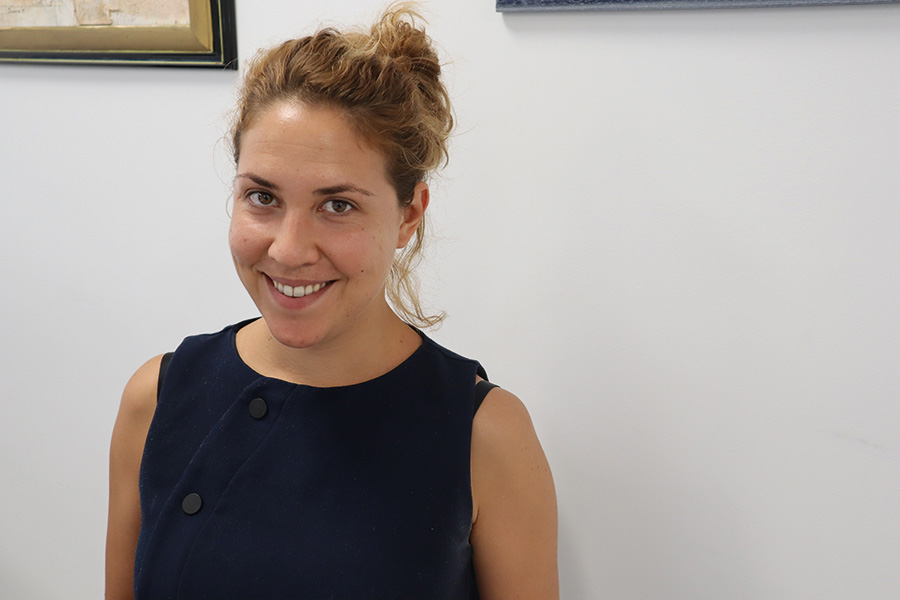Elderly people in residential care homes have been particularly affected by the pandemic and the safety measures associated with it. Isolation, loneliness, and the lack of physical touch are a few factors that have impacted their mental well-being.
Continue readingClaiming the Right to a Relationship
Everyone should have the right to explore intimate relationships, break up and make up, and find a place where they are comfortable in their sexuality. So why is it that people with disabilities are so often denied these experiences? Becky Catrin Jones speaks to Dr Claire Azzopardi Lane about her pioneering work
Continue readingOn mindfulness
In this overwhelming world of apps, chats, commercials, and instant everything, we’re fighting for our attention at every turn. We sometimes barely have time to think about our decisions, often regretting what we did or what we bought a short while later.Resurrected from old Buddhist teachings, mindfulness is being touted as the answer to the varying needs and demands of modern society. New-age ‘gurus’ offer courses that claim to change our life in seconds. To me, this has always sounded like a mission impossible.
Daydreaming poses a challenge for me. Ideally, it should give us the space to absorb new information and figure out potential options for future decisions and behaviour. But most of the time, programming takes over. We mentally analyse events and their effects—we worry—failing to be present.
The ability to create a mindful space in our thoughts can be developed through regular mindfulness meditation. The practice involves a lot of deep breathing, slowing down, observing our passing thoughts, and absorbing our surroundings. There are even apps to help boost our levels of mindfulness.

While this might seem like fluff to some, studies have found clear evidence for the positive effects of such practice. Meditation has been shown to have a positive effect on well-being and emotional regulation. Some research also shines light on its therapeutic benefits for anxiety and depression. Research shows that mindfulness gives us extraordinary insights. Those who practice regularly say that they experience the present reality to a sharper degree, absorbing small details that usually get lost. Imagine, instead of automatically reacting to your surroundings, being able to focus in the moment so that you can actually choose your next step with intention. That is power!
Personally, I found that a month of dedicated practice sharpened my attention. I started noticing small things and gestures that, before, would just pass me by. It drove the amount
of wasted time down significantly. I made better decisions. It wasn’t easy to sit there with all my thoughts, but it definitely trained my mind to overcome challenging tasks.
We can all benefit from regular mindfulness practice. Go on and try it for yourself. Take a deep breath, slow down, and pause. Seize the moment. Be.
Further reading:
Cocoran, K. M., Farb, N., Anderson, A. & Segal, Z. V. (2010). Mindfulness and emotion regulation: Outcomes and possible mediating mechnanisms. In A. M. Keing & D. M. Sloan (Eds.), Emotion regulation and psychophatology: A transdiagnostic approach to etiology and treatment (pp. 339 – 355) New York: Guillford Press.
Hoffman, S. G., Sawyer, A. T., Witt, A. A., & Oh, D. (2010). The effect of mindfulness-based therapy on anxiety and depression: A metaanalytic review. Journal of Consulting and Clinical Psychology, 78, 169 – 183. doi:10.1037/a0018555
Author: Sofija Borojevic
Brain enhancing drugs
This is a murky area to discuss. Cognitive-Enhancing drugs are usually used to treat conditions such as sleeping disorders and ADHD. However, if taken by a person (and we do not recommend these pills) without these conditions, they can enhance the brain for a short time. But no gain comes without pain.
Side effects are a problem. Take coffee, a weak stimulant that increases focus for a short period. A person slowly builds up tolerance and an addiction to the effect of caffeine. The ability to maintain a normal state of focus now requires that cup of coffee. Mind enhancement drugs taken without a prescription could lead to sharper wits in the short term, however they could lead to addiction in the long term. Ritalin and Adderall, prescribed for ADHD, can also lead to heart problems.
The benefits many of these drugs give are usually minor—nothing like the movie Limitless. But while our minds do have limits, they are probably fewer than one might expect, especially if we push ourselves that extra mile.
Send in your science questions to think@um.edu.mt





